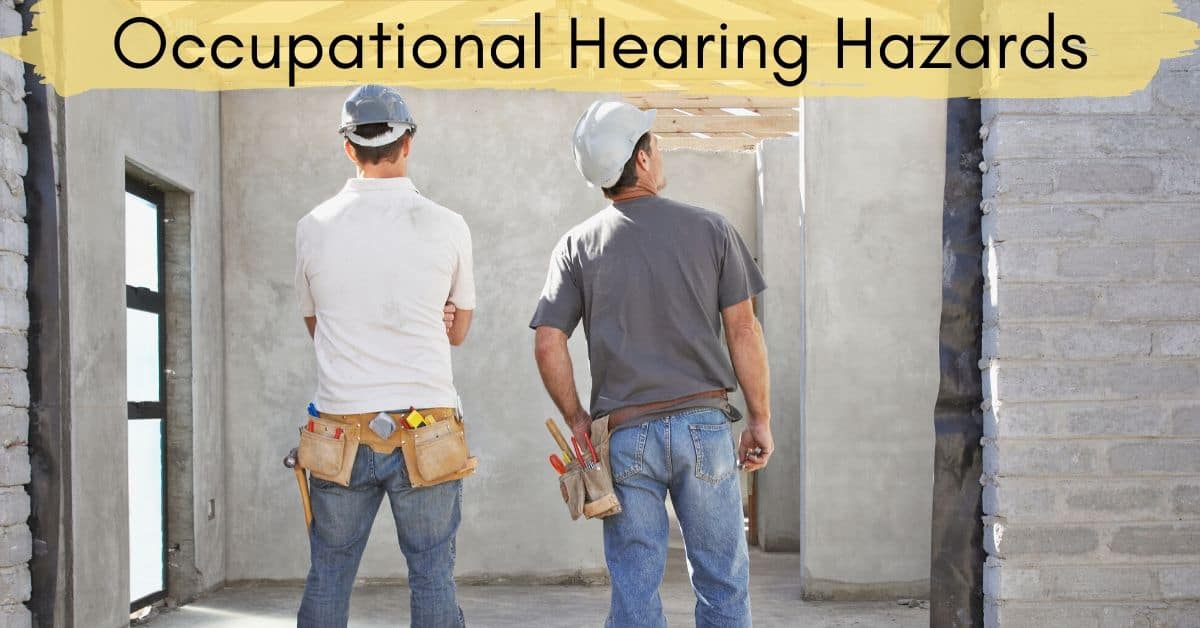If you are employed in a large heavy industrial site, no doubt you are familiar with the workplace protocols for hearing protection. Any workplace of that size and scale must take measures to protect the hearing of its employees, and the Occupational Safety and Health Administration (OSHA), a subdivision of the United States Department of Labor, has been tasked with ensuring that every workplace abides by a strict set of standards to protect the hearing of its workers.
However, despite the best efforts of OSHA and the best intentions of employers, some workers undoubtedly slip through the cracks and incur undue hearing loss in the workplace. Although these regulations are in place, you are the one ultimately responsible for your hearing health, and sometimes that means taking measures beyond those prescribed in government regulations.
Let’s begin by considering the range of occupational hearing hazards before turning to look at what you can do to protect your hearing from undue damage in the workplace.
The Range of Workplace Hearing Hazards
Although huge factories and large, permanent industrial sites should all have OSHA inspectors on site to ensure the safety of their employees, these locations are not alone among the workplaces that can do hearing damage. Indeed the damage done by machinery and manufacturing tends to be at such a high decibel level that workplaces must give employees limited exposure to those machines.
Beyond the mandated hearing protection, these workplaces emit sounds so loud that enduring a single 8-hour shift might do damage. For this reason, OSHA mandates cycling through different workstations to limit sustained exposure to noise in a single very loud location. Yet, industrial workplaces are not alone among those that pose hearing risks. These sites tend to require hearing protection, while others may not. You might be surprised to find how loud the hair dryer in a salon can be, the music in a nightclub, or the reverberation of voices in a restaurant on a weekend night.
Employees at each of these service locations might slip beneath the watchful eye of OSHA, particularly when they are small establishments with noise levels hovering on the edge of damage. Some also say that the standard set by OSHA might not be stringent enough. OSHA mandates that the decibel level of a workplace not exceed 85 decibels when averaged over an 8-hour shift. If you were to add up the noise of a hair dryer in a salon over the course of an 8-hour shift, you might find that it is louder than you think.
Protect Yourself in a Noisy Workplace
What can you do to protect yourself in a noisy workplace? Following the basic standards set by your employer is the first step. Though you might feel tempted to pull off your noise-cancelling earmuffs to have a conversation or to leave your earplugs out rather than getting a fresh pair after your bathroom break, the damage to your hearing ability can be permanent and is nothing to fool with.
Though you might feel protected in the short-term, the accumulated effect over a lifetime can be incredibly damaging. In addition, those who do not have mandated hearing protection in the workplace should consider employing it on their own. There are simple smartphone apps that can measure the decibel level of a place, and you might want to leave your phone somewhere close to your ears in order to get a general sense.
If you find that the noise gets anywhere close to the legal limits, you should get hearing protection for your place of work. Simple disposable earplugs are better than nothing, and more advanced custom-fitted earplugs and over-the-ear muffs are available for more advanced support. Protection with customized earmolds can even make it easy to have a conversation without taking out your hearing protection, only cancelling out the very damaging ranges of frequency and volume.
If you see a coworker who is not using hearing protection properly, you might want to encourage that person to do so in a friendly manner. By doing so you are not enforcing rules but looking out for the long-term wellbeing of your coworker, and if they were to understand the risks of hearing loss, they would thank you!
If you are concerned about your hearing abilities, contact us today to learn more about our hearing tests and consultations.

